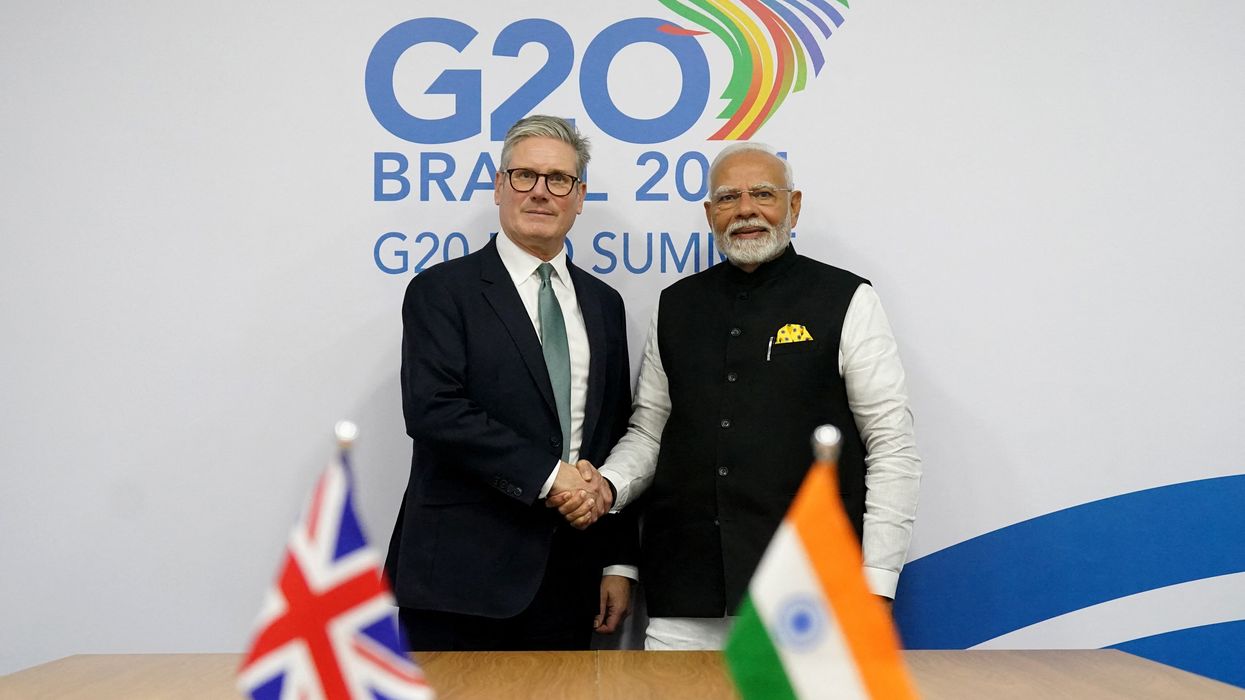PRIME MINISER Keir Starmer spoke to Indian prime minister Narendra Modi on Friday morning following the deadly attack in Kashmir’s Pahalgam region that killed 26 people on Tuesday.
According to a readout from 10 Downing Street, Starmer said he was horrified by the devastating terrorist attack and expressed deep condolences on behalf of the British people to those affected, their loved ones, and the people of India. The two leaders agreed to stay in touch.
A Downing Street spokesperson said, “The prime minister (Starmer) began by saying he was horrified by the devastating terrorist attack in Jammu and Kashmir on Tuesday, which saw the tragic loss of 26 innocent lives.” The spokesperson added, “He expressed his deep condolences on behalf of the British people to all those affected, their loved ones, and the people of India. The leaders agreed to stay in touch.”
India’s Ministry of External Affairs (MEA) said Starmer strongly condemned the “barbaric terror attack” and conveyed sincere condolences on the loss of innocent lives in what it described as a “heinous terror attack on Indian soil”.
MEA spokesperson Randhir Jaiswal said on X, “He strongly condemned the barbaric terror attack and expressed that the UK stands with the people of India in this hour of tragedy.”
On Wednesday, Starmer had described the attack as “utterly devastating” in a post on X. “My thoughts are with those affected, their loved ones, and the people of India,” he wrote.
Foreign secretary David Lammy also condemned the incident, calling it a “cowardly” act. “I am appalled by the horrific and cowardly terrorist attack on Kashmir earlier today. My thoughts are with all of those affected, especially those who have lost loved ones,” Lammy posted on X.
India has blamed Pakistan for the attack, in which gunmen opened fire on a crowd of tourists in Pahalgam using automatic weapons, killing 25 Indian nationals and one Nepali. The attack was the deadliest on civilians in Kashmir in 25 years.
In his first public remarks since the incident, Modi said India would identify and punish those behind the attack, as well as their backers. “I say to the whole world: India will identify, track and punish every terrorist and their backer,” he said. “We will pursue them to the ends of the Earth.”
India has suspended the Indus Waters Treaty with Pakistan and taken other diplomatic steps. Indian and Pakistani troops exchanged fire along the Line of Control overnight, officials from both sides said on Friday.
The attack was also raised in the UK Parliament. Conservative MP Bob Blackman called for a statement by the foreign secretary and said: “On Tuesday, we saw the systematic murder of Hindu pilgrims in Pahalgam in India. The sad reality is that the terrorist group thought to be responsible for this, Lashkar-e-Taiba, is a Pakistani organisation that deliberately targets innocent people in Jammu and Kashmir. We must give our reassurance and support to the government of India in ensuring that they apprehend these terrorists and those responsible for supporting them are also brought to justice.”
Lucy Powell, the Leader of the House of Commons, said the UK “stands shoulder to shoulder” with India and “resolutely condemns” the act. “That horrific terrorist attack in Kashmir was utterly devastating and a cowardly act. My thoughts and those of the whole government are with the affected, especially those who have lost loved ones,” she said.
Labour MP Tanmanjeet Singh Dhesi also condemned the “shocking, cowardly, and deadly terrorist attack on innocent tourists in Jammu and Kashmir”, and called for the perpetrators to be “swiftly brought to justice”.
The United Nations has called for “maximum restraint” from both countries.
(With inputs from PTI)





